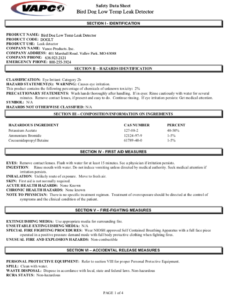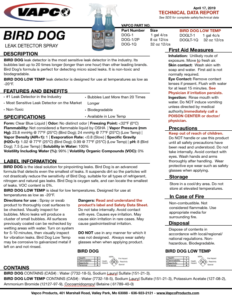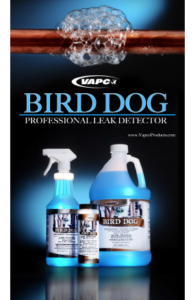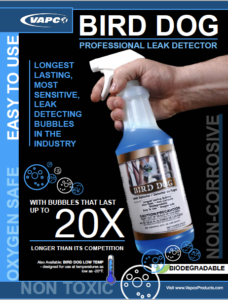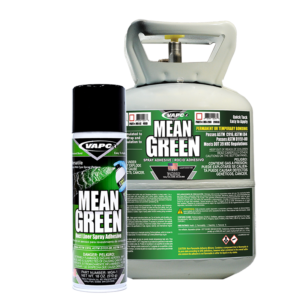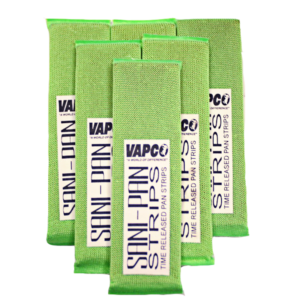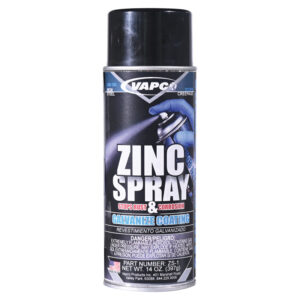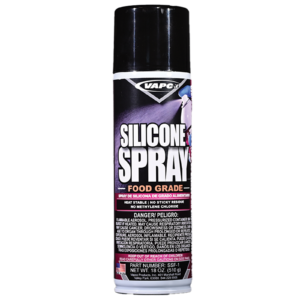BIRD DOG LOW TEMP
The Ultimate Leak Detector for Cold Environments
Introducing BIRD DOG LOW TEMP, the industry’s most sensitive leak detector designed for extreme cold conditions. With its exceptional low-temperature performance, BIRD DOG LOW TEMP is ideal for HVAC systems operating in frigid environments as low as -20°F.
Key Features and Benefits:
- Hypersensitive Detection: Pinpoints leaks with unparalleled accuracy.
- Long-Lasting Bubbles: Provides ample time for detection and repair.
- Low-Temperature Performance: Reliably detects leaks in cold environments.
- Safe for All Systems: Compatible with refrigerants, nitrogen, and natural gas.
- Oxygen Safe: Safe for use in oxygen-rich environments.
- 0% VOC Content: Environmentally friendly and non-toxic.
BIRD DOG LOW TEMP is the essential tool for HVAC professionals and homeowners seeking a reliable leak detection solution in cold climates. Its advanced formula and exceptional sensitivity ensure accurate and efficient leak identification.
Part Number: Size
- DOGLT-1Q 32 oz with sprayer 12/cs
Effective Leak Detection in Cold Environments
Before Application:
- Avoid Galvanized Metal: If possible, avoid applying BIRD DOG LOW TEMP to galvanized metal to prevent corrosion. Rinse thoroughly if applied.
Application:
- Thorough Coverage: Spray or swab BIRD DOG LOW TEMP generously onto the surfaces you want to inspect.
- Visual Inspection: Carefully examine the surfaces for the presence of bubbles.
- Identify Micro Leaks: Small clusters of bubbles often indicate micro leaks.
- Re-Inspection: Wet previously coated areas with water to re-check for leaks.
- System Operation: Turn on the HVAC system for 5-10 minutes to check for vibration-induced leaks.
By following these steps and using BIRD DOG LOW TEMP, you can effectively identify and address leaks in your HVAC system, even in cold conditions.
DANGERS & PRECAUTIONS:
Read and understand the product’s label and Safety Data Sheet. Do not take internally. Avoid contact with eyes. It causes eye irritation. May cause skin irritation in rare cases. May cause gastrointestinal irritation.


